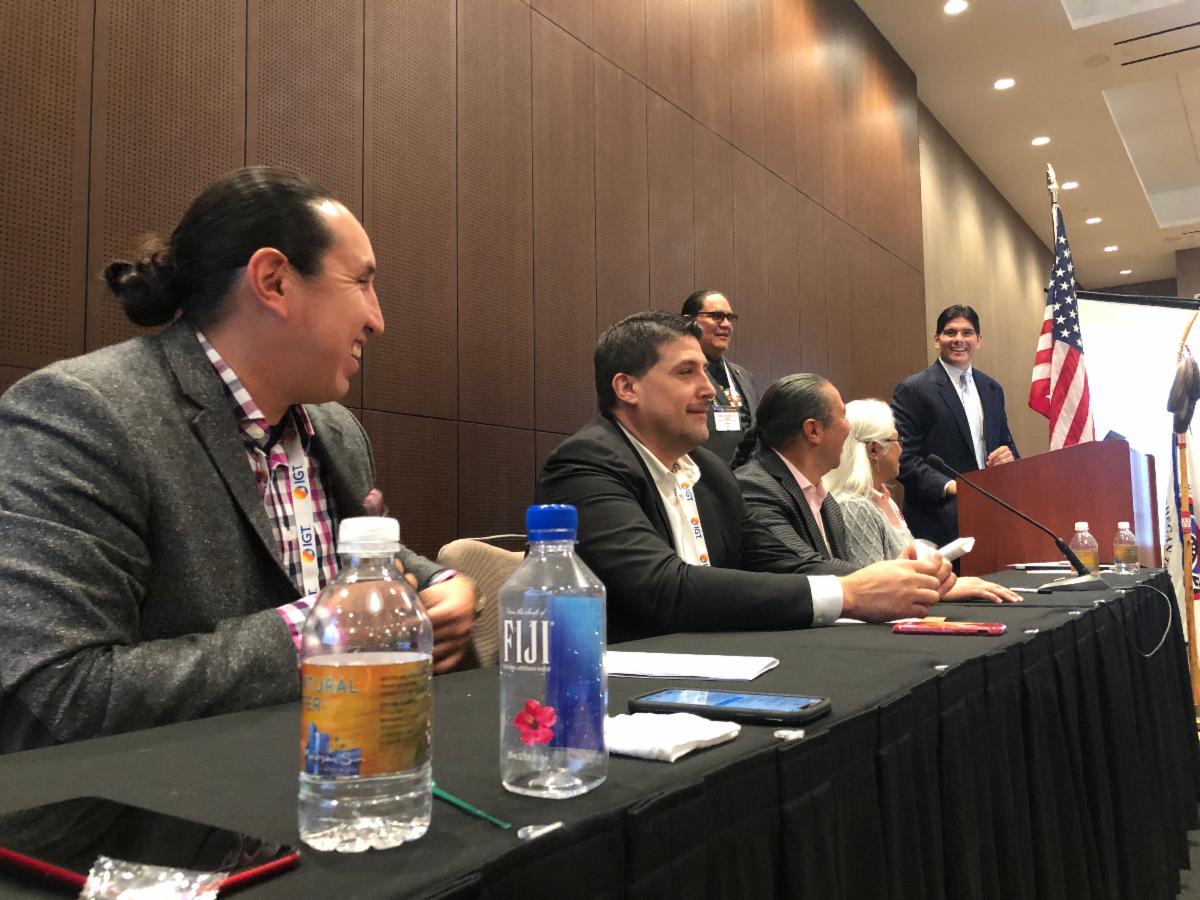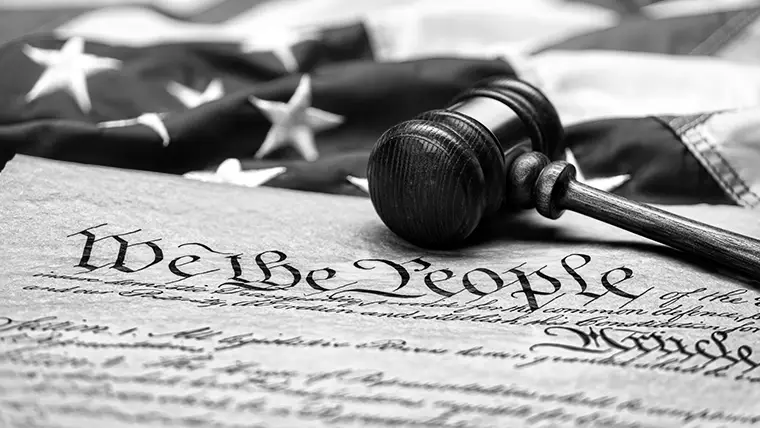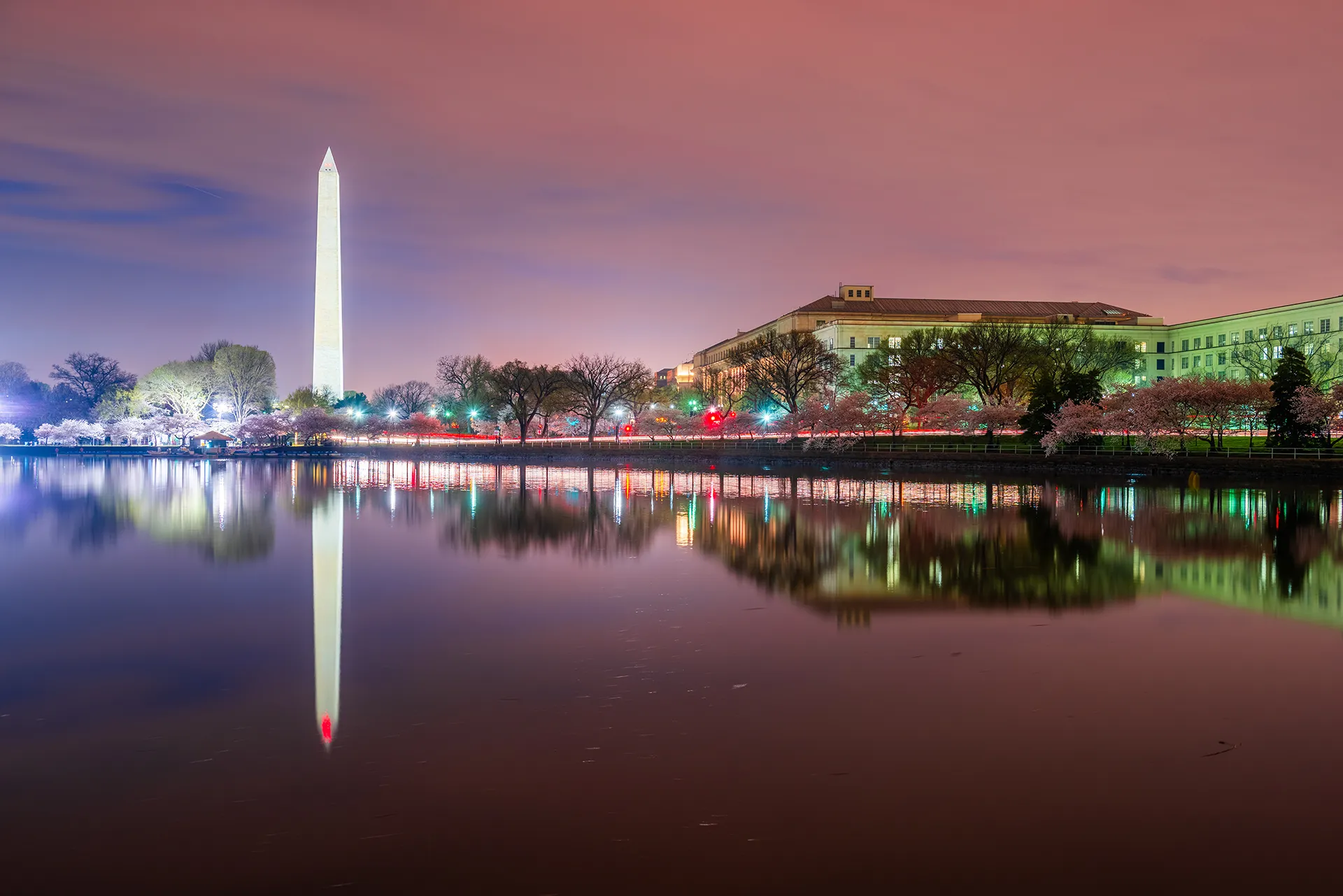September 18, 2019

Uncasville, CT – September 18, 2019 – The National Indian Gaming Association continued their morning membership meeting agenda with a panel entitled “Sports Betting Developments: Compact Negotiations and Operational Issues.”
The discussion was moderated by Jason Giles, Executive Director of NIGA, and included a group of tribal leaders including David Bean, Chairman of the Puyallup Tribe, Bea Carson, Chairwoman of the Mississippi Choctaw Nation Gaming Commission and Brandon Yellowbird Stevens, Vice-Chairman of the Oneida Nation of Wisconsin and Rion Rameriz, Legal Counsel at the Mashantucket Pequot Tribe.
In May 2018, the Supreme Court overturned the Professional and Amateur Sports Protection Act (PASPA). Since the Supreme Court overturned the statute outlawing Sports Betting, Tribal Leaders have been sorting through how that decision impacts their gaming compacts with the States and their casino operations.
Carson acknowledged that wagering on collegiate sports is critical to sports wagering in tribal casinos in Mississippi and that they see a lot of people come from out of state to place wagers in their sportsbook.
Oneida Vice-Chairman Brandon Yellowbird Stevens said, “Sports betting in Wisconsin would require only a compact amendment. To prepare, Oneida worked with the Wisconsin tribes to develop core principles surrounding the pursuit of Sports Betting.” He added, “We also spoke with collegiate and professional sports partners.”
David Bean shared that the Puyallup tribe is working on legislative efforts to expand gaming to include sports betting and that the legislation would require the state to compact with all interested tribes in the state of Washington.
Mr. Rion Ramirez, General Counsel at Foxwoods, was a guest addition to the panel given his ongoing work in Connecticut to make sports betting a reality for the Tribes in that State.
It is clear that Indian Country faces several hurdles to implement sports betting as an entertainment choice. What is also clear is that adjacent States, such as West Virginia, New Jersey, and Pennsylvania, are doing extremely well with the introduction of sports betting. Tribes deserve the same opportunities for economic development and will continue to work with our partners at the State and federal level to add this now legal form of entertainment.
BIA Publishes Final Rule for Section 293 Class III Tribal-State Gaming Compacts

Remembering and Honoring the Legacy of Dr. Martin Luther King, Jr.

Statement From The Chairman Of The Indian Gaming Association: “Compromise or Collision Course: Americans Need Government to Function”
